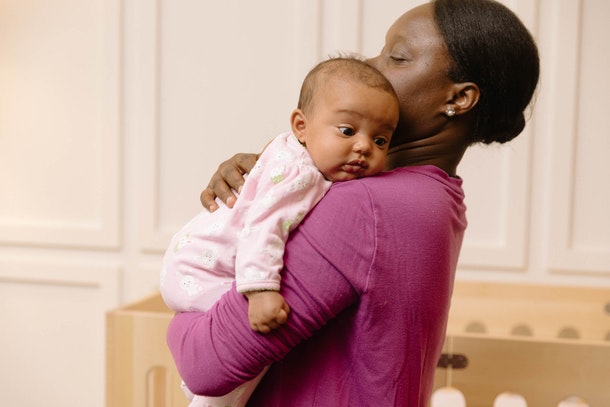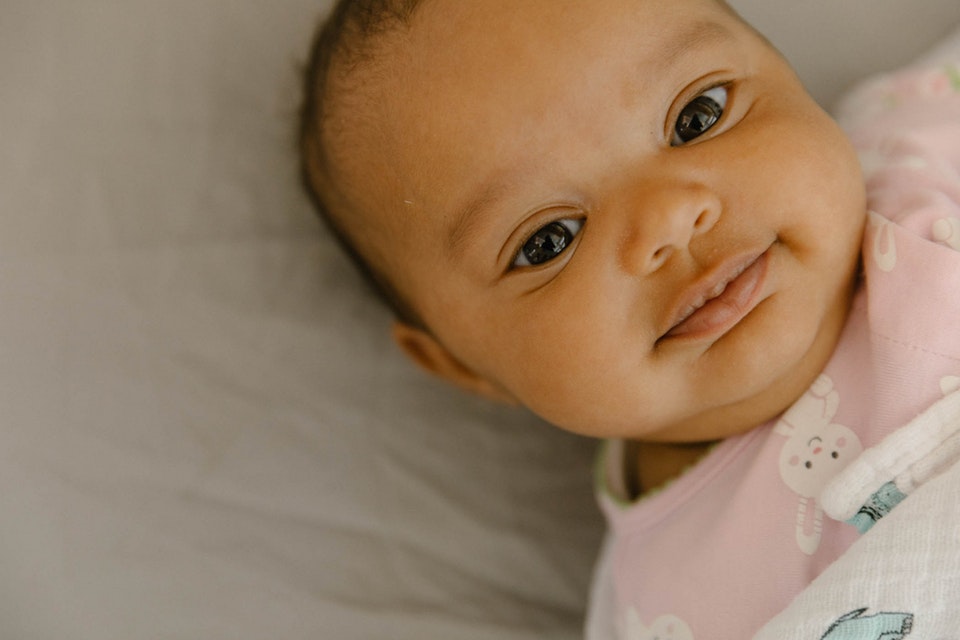Your baby’s love affair with your smell starts in the womb, Madden says. “Their sense of smell develops early on during pregnancy, and the first smell babies are exposed to is the odor of their mothers’ amniotic fluid.”
After birth, babies use all of their senses to get to know you and the world around them, including their sense of smell. “Before a baby is even born, he hears your voice. By the first time you get to hold him, he recognizes what you sound like. Within a few days, your baby knows your smell,” Levenson tells Romper. “By day three, he can differentiate the smell of your breast milk from someone else’s. Within a week, your baby will recognize you and develop feelings of attachment associated with your face.”
Multiple studies have shown that newborns “recognize and prefer the smell of their own mother’s body odor and breast milk, even within the first few days after birth,” Madden says. Which, you know, is objectively a little gross, but also incredibly sweet.

As one of the first people who nurtures them, it’s no wonder that your smell seems to make your baby feel secure. One 2015 study published in the journal Breastfeeding Medicine found that even just the smell of their mother’s breast milk had a calming effect on premature babies. Another study by researchers at Penn State College of Medicine found that for some babies, the smell of their mothers was too enticing to sleep in the same room, leading to less sleep for both babies and their parents.
“Interestingly enough, there is pilot data showing that babies’ pain can be reduced during procedures such as drawing of a sample of blood from the heel for a newborn screen,” Madden says. “If they smell their mothers’ amniotic fluid, hospital gown with body odor, or breast milk while the procedure is being done.”
Levenson notes that your baby will not only learn to recognize your scent, but will learn no matter how you feed them. “Your baby will recognize your scent within days of birth. He will nuzzle in the space between your chin and your chest to feel close to you,” she says. “Babies know their mother‘s scentjust from the smell of her skin. If you choose not to breastfeed, you don’t have to worry, your baby will still love the smell of you.”
This ability to recognize you — and your scent — can play a big role in their social development, Levenson continues. “As your baby learns who you are — and they will — they begin to develop feelings of attachment, which will provide security in their relationships throughout life. Each time your child cries with hunger, you appear to feed him. Each time he is upset, you comfort him until he feels better. This sense of security sets the stage for ease of trust with others and the development of an internal ability to self-soothe.”
Source: How Do Babies Know Their Mother’s Scent? Experts Explain













